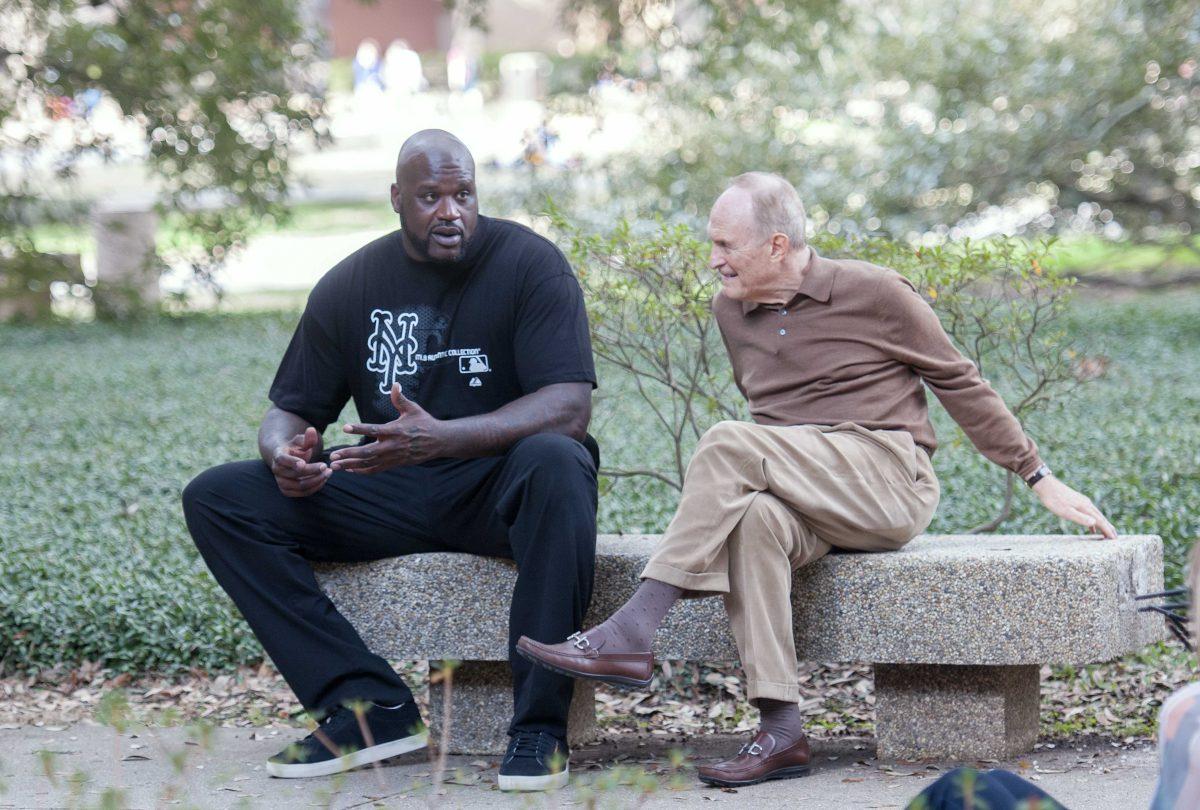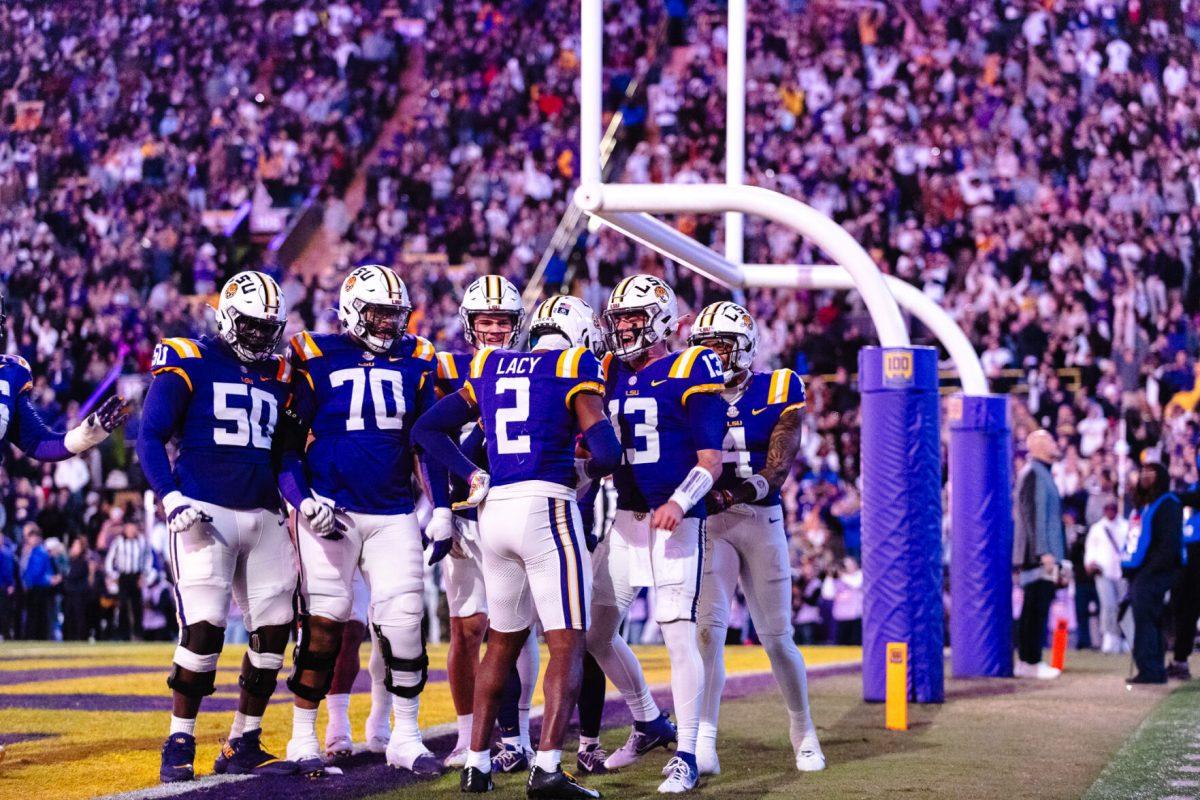It’s hard to think about the LSU men’s basketball program’s storied history without thinking of the legendary former coach Dale Brown, and on Friday, Sept. 10, Brown finally got the recognition many believed he deserved.
The LSU Board of Supervisors approved plans to name LSU’s basketball court after Dale Brown. This decision came after a 12-3 vote and years of debate over whether Brown was deserving of this honor. Despite years of controversy over the proposed plans, many people showed their support for him, and ultimately, the name change was approved.
One of the most local supporters of the name change was Board of Supervisors member and former LSU basketball player Collis Temple. Temple was the first Black player of the program, and said that Brown played a huge part in supporting Black collegiate athletes during his coaching career.
“He changed the trajectory of the state of Louisiana and the mindset of all stereotypical negatives,” Temple said.
Brown had always been a coach who did what was best for his players, resulting in many of his former players vouching for him to have the court renamed in his honor. Alongside Temple, Durand “Rudy” Macklin, Ricky Blanton and Jordy Hultberg were all former players of Brown who publicly advocated for the name change before the vote and ultimately made a huge impact in getting the name change approved.
There was some pushback, however, as there were some who believed that legendary former LSU women’s basketball coach Sue Gunter, who has a statue inside the Pete Maravich Assembly center, deserved to share the recognition with Brown. Gunter coached the team from 1982-2004 and led them to 14 NCAA Tournament appearances and a Final Four appearance in 2004. Multiple board members pushed for the court to be named “Gunter-Brown Court,” but that idea fell through after a 12-3 vote against the name.
Over the years there had also been plenty of hesitation for the naming due to Brown’s history with the NCAA.
Brown had often been critical of the NCAA, and in 1998 LSU basketball was placed on probation over a claim that an LSU assistant coach offered then-player Lester Earl $5,000 while he was attending LSU. The claim came from Earl himself and was never proven, leading many to believe that the NCAA came down hard on Brown due to his history with the NCAA. In 2007 Earl publicly admitted that he lied about the claim and apologized to Brown which helped clean his reputation. It was a step in the long process of the ruling to rename the basketball court that was approved last week.
For many reasons, it feels fitting that now is the time that the great Dale Brown finally got his recognition in the form of having the court named after him.
In a year where student athletes are finally able to profit off their name, image and likeness, and off the back of a year filled with nationwide protests of racial injustice, it is fitting that a man like Dale Brown got the recognition that many believed he should’ve received a long time ago.
There will always be debates over whether the process was handled the right way, or whether other ways to honor Brown could’ve been considered.
One thing that is for certain now, however, is that every time an LSU basketball player steps on the court at the Pete Maravich Assembly Center, there is forever a reminder of who paved the way for them to be in that position.
Column: The Dale Brown Court a fitting tribute to a legendary coach
By Peter Rauterkus | @peter_rauterkus
September 15, 2021
Taylor Balkom
Former LSU basketball player Shaquille O’Neal talks with former LSU basketball coach Dale Brown on Monday in the Quad. Shaq is part of a flim with Brown, filming in various locations across campus.
More to Discover











